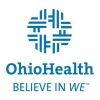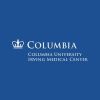The Role of Exercise in Heart Disease Recovery
When someone is diagnosed with heart disease or has undergone heart surgery, the road to recovery can seem daunting. However, an often overlooked yet essential aspect of recovery is regular exercise. While it may seem counterintuitive to engage in physical activity after a heart-related event, exercise has been shown to be one of the most effective ways to promote healing, restore cardiovascular function, and prevent further complications.

How Exercise Enhances Heart Function
For individuals recovering from heart disease, exercise provides numerous benefits. Regular physical activity can help lower blood pressure, improve circulation, and reduce cholesterol levels. Exercise also strengthens the heart muscle, allowing it to pump blood more efficiently. This is crucial for patients recovering from heart attacks, bypass surgeries, or other heart-related procedures.
Capital Health Medical Center – Hopewell
capital health medical center hopewell
1 Capital Way, Pennington, NJ 08534, USA

The Cardiovascular Benefits of Exercise
One of the key benefits of exercise is its impact on cardiovascular health. When you engage in physical activity, your heart works harder to pump blood and deliver oxygen to your muscles. Over time, this strengthens the heart and improves its ability to function optimally. For individuals recovering from a heart event, exercises like walking, swimming, and cycling are often recommended because they are low-impact and can gradually build up stamina and strength.
Improving Circulation and Reducing Risk Factors
Exercise helps improve blood flow and circulation, which is essential for heart disease recovery. It aids in reducing the levels of LDL (bad cholesterol) while increasing HDL (good cholesterol), which can help prevent further buildup of plaque in the arteries. This reduction in plaque accumulation can lower the risk of future heart attacks or strokes. Regular physical activity also helps regulate blood sugar levels, which is particularly important for individuals with diabetes or pre-diabetes, conditions that often accompany heart disease.
Rehabilitation and Recovery after Surgery
After undergoing heart surgery, such as a bypass procedure or a stent placement, physical therapy and guided exercise are vital components of rehabilitation. The first few weeks following surgery are critical, as the body heals and regains strength. Physiotherapists often recommend a structured exercise program designed to improve flexibility, strength, and cardiovascular endurance. This tailored exercise plan helps individuals gradually return to normal activities while avoiding the risk of overexertion or injury.
How Exercise Reduces Stress and Improves Mental Health
Recovering from heart disease or surgery isn't just about physical health – mental and emotional well-being is equally important. Exercise has been shown to have a positive effect on mental health, reducing stress, anxiety, and depression. Physical activity promotes the release of endorphins, the body's natural mood elevators, which can help improve a person’s outlook during the recovery process.
Stress Reduction Through Exercise
One of the most significant challenges for individuals recovering from heart disease is managing stress. Chronic stress can raise blood pressure, increase inflammation, and lead to further heart complications. By engaging in physical activity, individuals can reduce their stress levels, which in turn supports heart health. Activities such as yoga and tai chi are particularly beneficial, as they combine gentle movement with deep breathing, promoting relaxation and calmness.
Improved Sleep and Better Mental Clarity
In addition to reducing stress, exercise can improve sleep quality. A good night’s sleep is essential for heart health, as it allows the body to repair and rejuvenate. Exercise helps regulate the body’s circadian rhythms, which can lead to more restful and uninterrupted sleep. Furthermore, regular exercise enhances cognitive function, which can help individuals maintain mental clarity during the recovery process.
Building an Exercise Routine for Heart Disease Recovery
Creating a safe and effective exercise routine is essential for anyone recovering from heart disease or heart surgery. It's crucial to work with a healthcare provider to develop a plan that meets individual needs and abilities. Below are some general guidelines to help build a heart-healthy exercise routine:
1. Start Slowly and Gradually Increase Intensity
It's important not to rush into a strenuous exercise program immediately after a heart event. Start with light activities, such as walking or gentle stretching, and gradually increase intensity as your body becomes stronger. This approach helps prevent overexertion while allowing your cardiovascular system to adjust to increased activity levels.
2. Focus on Aerobic Exercises
Aerobic exercises, such as walking, swimming, or cycling, are excellent choices for heart disease recovery. These activities raise the heart rate and improve cardiovascular fitness without putting undue strain on the heart. Start with shorter sessions and progressively extend the duration as you build endurance.
3. Include Strength Training and Flexibility Exercises
Strength training and flexibility exercises are also essential components of a heart-healthy routine. Light resistance training, using weights or resistance bands, can help strengthen muscles, including the heart muscle. Flexibility exercises, such as yoga or Pilates, help improve balance, mobility, and overall body function, which is important for daily activities.
4. Listen to Your Body and Rest When Needed
One of the most important aspects of exercise during recovery is listening to your body. If you feel tired, dizzy, or short of breath, it's crucial to stop and rest. Overexertion can be harmful, especially during the early stages of recovery. Taking breaks and allowing your body time to rest is key to ensuring long-term success.
Conclusion
Exercise is a cornerstone of heart disease recovery. By engaging in regular physical activity, individuals can strengthen their heart, improve circulation, reduce risk factors, and enhance their overall well-being. Whether recovering from surgery or managing chronic heart disease, incorporating exercise into your daily routine can significantly improve your recovery and quality of life.






















Deborah Heart and Lung Center
deborah heart and lung center
200 Trenton Rd, Browns Mills, NJ 08015, USA